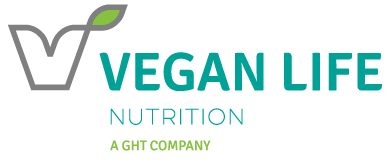It’s very rare that anyone, especially those following a vegan diet, can get the recommended daily value of essential nutrients from food alone – this is why many choose to supplement those vitamins and minerals. It’s vital that the supplements we take do their job well and help us to take in as much of the nutrients as possible. When examining the effectiveness of new supplements, you need to consider their bioavailability before you start taking them daily.
Why is Bioavailability Important in Supplements?
A supplement’s bioavailability is the percentage of nutrients and micronutrients that reach the bloodstream in order to be useful to our bodies, rather than passing through the GI system. However, not all supplements are created equally. You need to be intentional about choosing a highly bioavailable supplement to increase the chances that your body will take in the necessary nutrients and help you stay healthy – otherwise, you could be paying for and consuming vitamins that have little to no impact on your system.
Factors that Inhibit Bioavailability
There are many factors that can keep your supplements from being beneficial to your health. This includes the quality of the food you are eating, the overall health of your Gastro-Intestinal tract, pregnancy status, and genetic makeup.
Here are some additional factors to be mindful of:
Alcohol
Alcohol can interfere with the absorption of vitamins A, D, E, K, most of the B vitamins, and the minerals magnesium and zinc. Alcohol increases the demand for nutrients while accelerating their loss from the body. This, in turn, impairs the supplement’s storage and utilization.
Caffeine
Caffeine can decrease the absorption of nutrients and increase the excretion of important vitamins and minerals. It also contains properties that can inhibit the absorption of B vitamins, calcium, iron, and magnesium.
Digestive Issues
Crohn’s, irritable bowel syndrome (IBS), celiac disease, and other digestive problems can significantly hinder the body’s ability to properly absorb and utilize nutrients.
Stress
Excessive stress can increase cortisol levels in the body which can deplete the body of its nutrients and wreak havoc on the digestive system.
Factors that Enhance Bioavailability
Not all supplements are going to be naturally bioavailable, and that’s ok! There are other things you can look for and put into practice to increase the chances of higher bioavailability.
The Form
Liquid multivitamins have far more bioavailability potential than capsules or gummies due to the fact that liquids enter your bloodstream easier.
Time of Day
Some supplements may have more benefits when taken at certain times during the day. Research on the specific nutrient can help you determine when to take your supplement(s) of choice.
Taking Your Supplements with Food
Since supplements generally aren’t well tolerated when taken on an empty stomach, most should be taken with a meal. For example, vitamins A, D, and E, are fat-soluble supplements and should be taken with a meal containing fat to aid in their digestion.
Supporting Ingredients
Some ingredients can increase the bioavailability of other nutrients. For instance, vitamin C can enhance the bioavailability of iron. Also, Vitamin D3 and K2 help facilitate calcium absorption into the bones for maximum bioavailability.
Proper Storage
To help ensure the efficiency of your supplements, be sure to store them in a cool, dry area away from direct sunlight. Make sure they’re tightly sealed to prevent moisture from getting in. If the structure of the supplement is compromised, it won’t be as effective.
Vegan Supplements with Vegan Life Nutrition
No matter what vitamins you take, you need to make sure that they are built with ingredients you can trust. Learn more about Vegan Life Nutrition, our story, and our products on our website.


